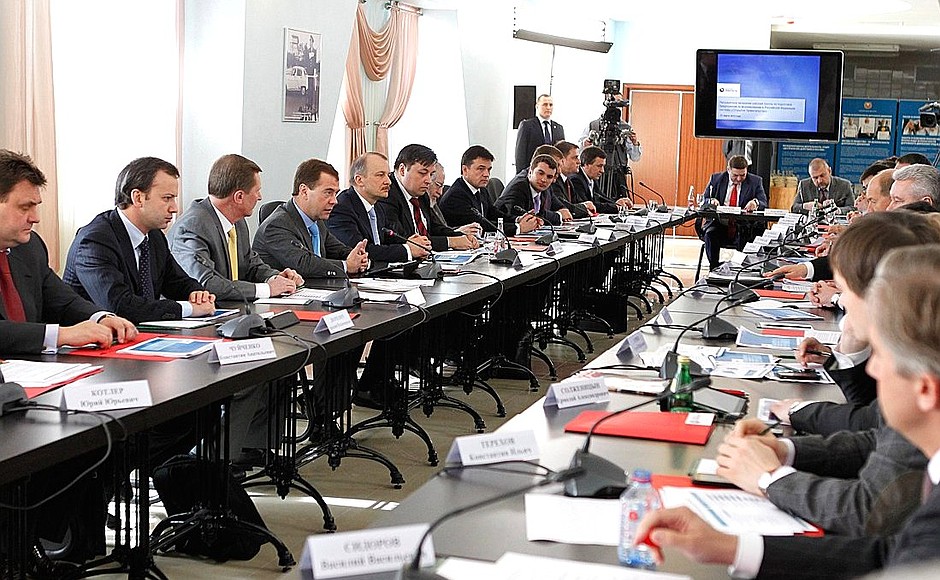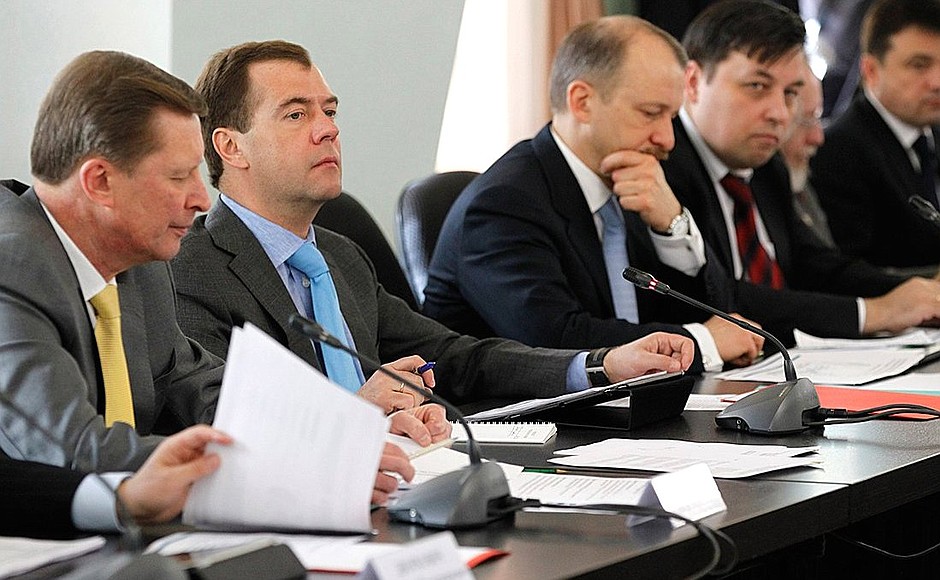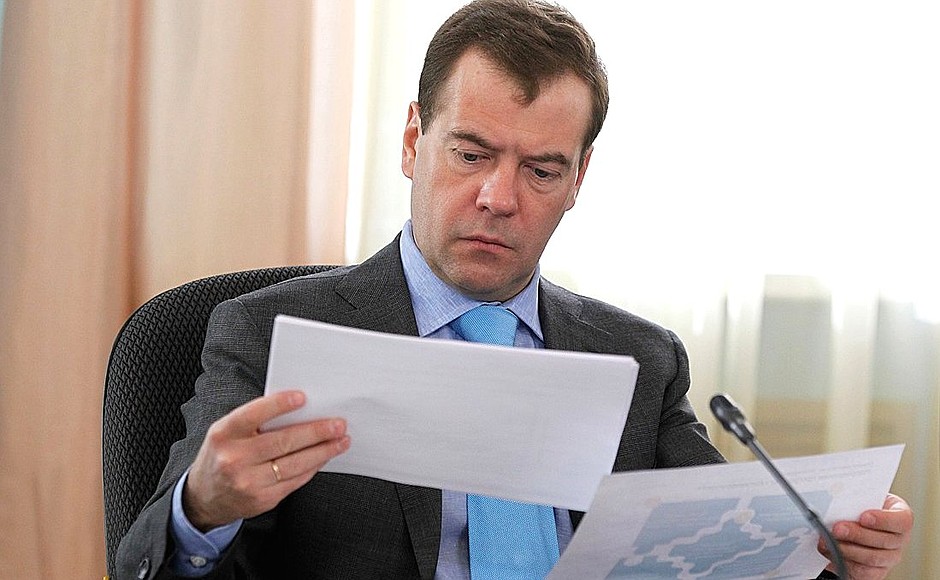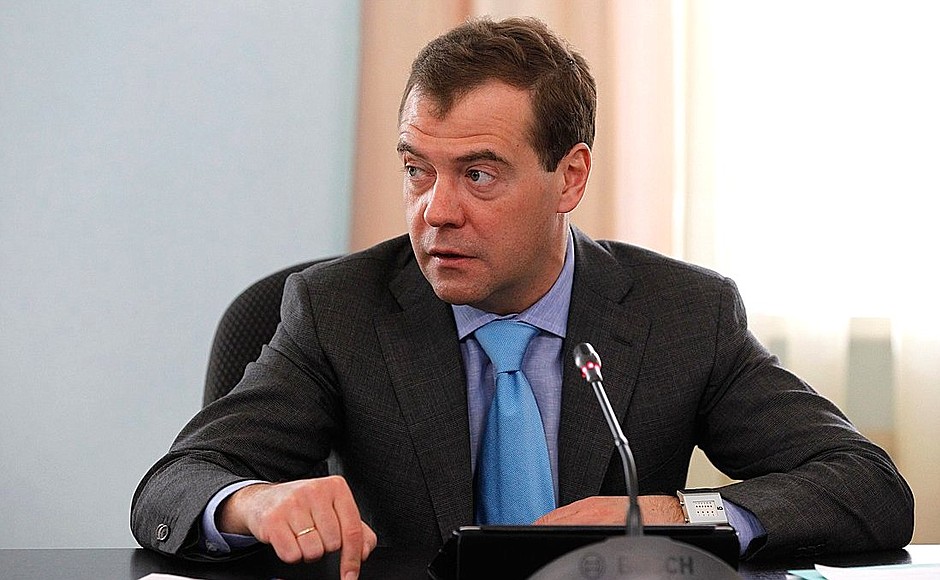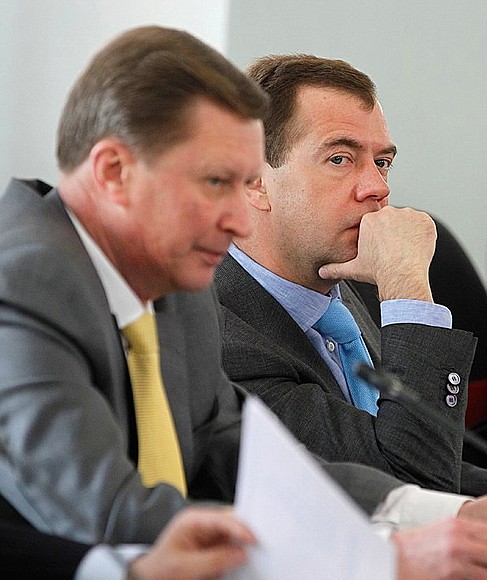The meeting was held at the Special Traffic Safety Centre. Before the meeting Dmitry Medvedev was briefed on the work of the Centre.
Opening remarks at a meeting of the working group to draft proposals for developing the Open Government system in Russia
* * *
President of Russia Dmitry Medvedev: Good afternoon, colleagues,
Today we have a meeting of the working group to draft proposals for developing the Open Government system. One of the most important issues to be tackled by the working group is combating corruption, which is a crucial, highly complex and very painful problem.
Naturally, I expect the meeting participants to submit constructive proposals, which are based on expert and public opinion, proposals on improving legislation, both by developing new laws and drafting and promoting new bills, including the recently introduced draft law on monitoring state officials’ spending. This draft law is currently a subject of public debate, after which it will be submitted to the State Duma.
I will not devote too much time to telling you about what should be done to fight corruption. Obviously, this is an issue that cannot be addressed by legislative measures alone and it cannot be resolved by a certain deadline.
See also
”A large number of our citizens are no longer willing to accept all the existing forms of corruption. We see a growth in public demands to step up anti-corruption efforts in the upper echelons of power (because that is where it aggravates the most), at the federal level and at the regional level.“
I would like to remind you that when a few years ago I raised the issue for the first time at the highest level and insisted on the adoption of relevant legislation, no one – not the public, not our citizens and not me personally – harboured under the illusion that this problem can be radically reduced in just a few years. However, I have said this before and can say again: I believe that we have not spent these years in vain, if only because for the first time in a thousand years of Russian history we have put into place a specific legal framework for combating corruption. It may be imperfect because a regulatory framework cannot be ideal; it should always adapt to the current state of social relations in the country, to daily habits, the existing social institutions and a growing economy.
The public consciousness is very slow to change. Clearly, corruption, both the broadest and in the everyday sense, is always a process that involves more than one person. Let me remind you that both the bribe taker and the bribe giver are committing a crime. For some reason it seems that this doesn’t make sense to a lot of people. Consumer consciousness in general is based on the fact that the only offender is the bribe taker. This is a mistake – from a legal and a moral point of view.
A large number of our citizens are no longer willing to accept all the existing forms of corruption. We see a growth in public demands to step up anti-corruption efforts in the upper echelons of power (because that is where it aggravates the most), at the federal level and at the regional level. People complain about corruption in municipalities, corruption in everyday life and the problems with the misuse of public funds. In these latter cases, people are not involved directly but it certainly affects the level of corruption in the country and the overall state of the economy.
I have already said what I think about legislation. In my opinion, we took several important decisions on monitoring the incomes of state and municipal employees. This information is now provided by more than 1.2 million people. This does not mean that all the information is flawless, but this is the first time such information has been made public in the history of our country.
Last year 233,000 checks of relevant information were conducted, which revealed approximately 22,500 to 23,000 cases of providing false or incomplete information about incomes. This means that virtually every tenth check revealed that the information submitted by state officials was incomplete or inaccurate. Some officials were dismissed as a result but the number is not very large. I think this is one area we must tackle. People who submit a declaration must realise that although they may not be imprisoned for their offences, if they lie in the declaration they are certain to be fired. That's all. And let them live according to other laws.
”We have recently adopted important decisions on joining a number of key conventions, including those conventions that are important for Russia's membership in various international organisations, like the OECD; I mean the Convention on Combating Bribery of Foreign Public Officials in International Business Transactions.“
We must make fundamental changes to the income declaration drive and the regular work on the declarations.
We have recently adopted important decisions on joining a number of key conventions, including those conventions that are important for Russia's membership in various international organisations, like the OECD; I mean the Convention on Combating Bribery of Foreign Public Officials in International Business Transactions.
In 2015, Moscow will host the International Conference of the States Parties to the United Nations Convention against Corruption. I think that this will also benefit our country.
In addition to legislative measures, educational initiatives are also extremely important, and I believe the Open Government will be able to make a significant contribution in this area. Once again, I look forward to your proposals in relevant fields.
In preparing for today's event, we agreed to break up our discussion into five key blocks of issues. Naturally, these sections are provisional but it will be an effective way to structure our work. The first section focuses on the reduction of state intervention in the economy. The second block of issues has to do with the fight against the so-called “big corruption”. The third section is devoted to measures to reduce corruption in public procurement and improve the quality of corporate governance in companies with state participation. The fourth area deals with reducing everyday corruption. Incidentally, the fact that our meeting is being held at the Traffic Safety Department is closely linked with this issue and our presence here is not accidental. Finally, the fifth section is concerned with the development of effective public control mechanisms.
Let’s get to work.
<…>
